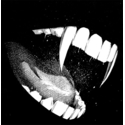Music is my boyfriend
Re: Music is my boyfriend
In my lighthearted bashing of eno on warp i should mention The Ship has what might be my favorite song of his in a what is a very rewarding album about the titanic
It fuses the ambient elements everyone knows him for with the brilliant pop production and what I think is his own voice for the first time in a long time about the sunk ship
What are your thoughts on his other work on warp?
Small craft ranks up there even above Ambient 1 for me, though it's obviously not as iconic and groundbreaking
It fuses the ambient elements everyone knows him for with the brilliant pop production and what I think is his own voice for the first time in a long time about the sunk ship
What are your thoughts on his other work on warp?
Small craft ranks up there even above Ambient 1 for me, though it's obviously not as iconic and groundbreaking
- 2
-

ramdomthought - Posts: 1102
- Joined: Wed Jul 10, 2013 11:53 pm
- Reputation: 5432
Re: Music is my boyfriend
i'm not going to touch on the iffy stuff but i'd argue an artist (as opposed to say a musician) has no such responsibilities to pander to any audience. isn't one such point of art to express something without censorship? what makes a musical artist different than a conceptual artist (for example, like ai wei wei) in the sense that one has to cater to an audience and one generally doesn't?
to me, it doesn't matter if the artist wants to express political views, societal opinions, or merely "i'm hungry." it's their art, if no one wants to consume it then so be it
to me, it doesn't matter if the artist wants to express political views, societal opinions, or merely "i'm hungry." it's their art, if no one wants to consume it then so be it
- 7
coolest lame guy u'll ever meet
-

fun_yunchables - Posts: 770
- Joined: Sat Jan 11, 2014 11:39 pm
- Reputation: 4916
Re: Music is my boyfriend
remember when david byrne wrote a book about how biking across the united states let him discover a different side of the country he lives in? good read! check it out!


- 4
-

mc-lunar - Posts: 585
- Joined: Sat Jan 04, 2014 12:27 am
- Reputation: 3537
Re: Music is my boyfriend
Went to see Japanese Breakfast about a week ago. Was a great and enjoyable show. Small intimate venue.
[youtube]watch?v=h3bMacoqgCg[/youtube]
[youtube]watch?v=h3bMacoqgCg[/youtube]
- 2
-

minoroperation - Posts: 6
- Joined: Thu May 05, 2016 11:06 pm
- Reputation: 33
Re: Music is my boyfriend
I like music and I wanted to share with you this track, of which I thought the snares were terrific. The album is uneven but the production is creative. Canadian/Junior Boys produced electronic/R&B, reminiscent of early Madonna.
- 4
-

Copeland - Posts: 262
- Joined: Sun Jan 18, 2015 9:40 pm
- Reputation: 794
Re: Music is my boyfriend
really love this video, reminds me of old movie adaptations of sci fi short stories (the veldt, all summer in a day)
- 0
[{[*#~&< /BLEH |BLEH| BLEH\ >&~#*]}]
-

weqe - Posts: 214
- Joined: Wed Mar 26, 2014 7:03 pm
- Location: Pittsburgh!
- Reputation: 1136
Re: Music is my boyfriend
been listening to bbng iv. i like how they brought on a permanent saxophonist. for the tracks where it's feature, imo the sax adds a whole dimension that doesn't really detract too far from their signature sound
favorite tracks are Time Moves Slow and IV.
IV in particular is really notable. love the bebop inspired movements, and the sax finishing solo is a nice touch. really drives home the biggest difference from their previous work.
favorite tracks are Time Moves Slow and IV.
IV in particular is really notable. love the bebop inspired movements, and the sax finishing solo is a nice touch. really drives home the biggest difference from their previous work.
- 4
coolest lame guy u'll ever meet
-

fun_yunchables - Posts: 770
- Joined: Sat Jan 11, 2014 11:39 pm
- Reputation: 4916
Re: Music is my boyfriend
New Schoolboy Q has a few sleepers on it. Not the first to do it by any means but thoroughly enjoying the spoop-hoop elements (spooky hip hop, traditionally "scary" instrumentation). He happens to pair that with the ongoing theme of face as facade/mask and different songs pulling that "mask" on and off, with some homonyms giving their lyrics drastically different meanings. "Ballin' in these streets" for example, will be slurred into "Barely in these streets" (at least to my ear. Your experience may vary).
Sleeper hits/deeper cuts/songs w/o music videos worth digging up:
Eddie Kane portion of Groovy Tony/Eddie Kane.
Metro Boomin's beat on Dope Dealer is crazy, E-40 somehow drops a trash verse when all he needed to do was not ruin it.
John Muir has a low key banging beat into the smoothest sax chorus. Would love to see someone use this in a set and get to dance to it.
Big Body is soooooo good. Again, the homophone trick. "Big body big benz/big body big bins." Crazy bass too. Tyler the Creator produced it.
Blank Face ft Anderson .Paak, really hoping people are up on him now. There's little he is involved in I don't enjoy.
Sleeper hits/deeper cuts/songs w/o music videos worth digging up:
Eddie Kane portion of Groovy Tony/Eddie Kane.
Metro Boomin's beat on Dope Dealer is crazy, E-40 somehow drops a trash verse when all he needed to do was not ruin it.
John Muir has a low key banging beat into the smoothest sax chorus. Would love to see someone use this in a set and get to dance to it.
Big Body is soooooo good. Again, the homophone trick. "Big body big benz/big body big bins." Crazy bass too. Tyler the Creator produced it.
Blank Face ft Anderson .Paak, really hoping people are up on him now. There's little he is involved in I don't enjoy.
- 1
-

Northwest - Posts: 80
- Joined: Wed Jun 03, 2015 2:00 pm
- Reputation: 287
Re: Music is my boyfriend
Got to see Sufjan Stevens play live last night at Pitchfork... unbelievable show, the most terrific neon-filled show I've ever seen.
He played "Impossible Soul". I saw it. Live. That alone would have made it worth going, but the whole show was perfect.
Some pics




He played "Impossible Soul". I saw it. Live. That alone would have made it worth going, but the whole show was perfect.
Some pics




- 8
"Let's be vagabonds." - Yohji Yamamoto
-

rjbman - Posts: 1560
- Joined: Sun Sep 29, 2013 11:34 pm
- Location: CO
- Reputation: 6846
Re: Music is my boyfriend
Picky Picnic was an incredible and mysterious avant-garde Japanese band active in the 80's with enough conjecture and legend surrounding it to put it in a room with Les Rallizés Denudes. Their homo ludens style of combining new-wave and musical experiments of the time with children's music, drawing heavily from nursery rhyme-like tunes, created a one-of-a-kind sound that only met with limited domestic success. Some have said that one of the two members were arrested on drug charges and they disbanded, with one of the members, Kaoru Todoroki, later releasing an obscure solo album called Uncle Calvin's Private Life (I still haven't managed to find a decent rip of this on what.cd)
The internet as a music sharing medium brought them to new audiences and a spike of popularity among music communities interested in the vast world of obscure 80's japanese pop/new-wave, and their influence might be partly responsible for the popularity of sounds like Kero Kero Bonito or PC Music. The album that made the first splash was Ha! Ha! Tarachine
Rips from this album made up the majority of their revived success, the interesting thing being that this entire release, along with almost every other one until just recently, have been played at the wrong speed, 45 rpm. Here is the album as it was apparently intended to be heard, 33 rpm.
But by the time anyone who owned this obscure record got around to realizing this (this was before the 2012 re-release), the 45 rpm "version" had already been engraved into the hearts and minds of listeners like myself, and arguably into a sort of internet cultural memory. The tempo and pitch themselves were hallmarks of a sound that everyone believed was shamefully lost or ignored for decades by most of the world, and it's resurfacing and subsequent popularity felt like no small coincidence. The 45 rpm version is what I listened to three times a week, walking from school to the print shop to buy polyester plates for lithography and there's no overwriting that sort of time.
I might edit this post later to talk about how that reminded me of something Mario Carpo wrote about how technologising-shifts can create new forms out of already existing ones. This is a bit more than a classic case of 'lost in translation', as the element that was lost (or rather, gained) became the keystone of the entire sound. Also, the massive proliferation of a single original upload is something that could have only existed in the digital age, making the resilience of the mistake possible in the first place.
The internet as a music sharing medium brought them to new audiences and a spike of popularity among music communities interested in the vast world of obscure 80's japanese pop/new-wave, and their influence might be partly responsible for the popularity of sounds like Kero Kero Bonito or PC Music. The album that made the first splash was Ha! Ha! Tarachine
Rips from this album made up the majority of their revived success, the interesting thing being that this entire release, along with almost every other one until just recently, have been played at the wrong speed, 45 rpm. Here is the album as it was apparently intended to be heard, 33 rpm.
But by the time anyone who owned this obscure record got around to realizing this (this was before the 2012 re-release), the 45 rpm "version" had already been engraved into the hearts and minds of listeners like myself, and arguably into a sort of internet cultural memory. The tempo and pitch themselves were hallmarks of a sound that everyone believed was shamefully lost or ignored for decades by most of the world, and it's resurfacing and subsequent popularity felt like no small coincidence. The 45 rpm version is what I listened to three times a week, walking from school to the print shop to buy polyester plates for lithography and there's no overwriting that sort of time.
I might edit this post later to talk about how that reminded me of something Mario Carpo wrote about how technologising-shifts can create new forms out of already existing ones. This is a bit more than a classic case of 'lost in translation', as the element that was lost (or rather, gained) became the keystone of the entire sound. Also, the massive proliferation of a single original upload is something that could have only existed in the digital age, making the resilience of the mistake possible in the first place.
- 6
-

whocares1 - Posts: 15
- Joined: Wed Jul 27, 2016 11:53 pm
- Location: New York
- Reputation: 60
Re: Music is my boyfriend
Still in recovery from seeing Clipping live. Saw them perform Don't Sleep for the first time for any audience live (fantastic) but even if they hadn't performed it and made it that much extra special, goddamn what a show. Daveed Diggs performing Clipping songs back to back seems like an inhuman accomplishment, crowd was having a blast, and crowd interactions were on point as far as set pacing and building the crowd to a fever pitch.
Entire venue went up when Body and Blood came on, noise fans moshing with punk/hardcore fans with hip hop fans, and the sound was BOOMING. Definitely came to one point during the set where it was so loud and so trancelike it pretty much overrode conscious thought. Added personal flourishes to songs but didn't overstep the boundaries of allowing the crowd to participate, actually increased tempo on songs that were already seemingly too fast for any human being to perform, and closed out on such a blast of energy I walked out shaking and hoarse.
Cannot recommend seeing any band more highly if you are into this sort of thing, and I got to see them for all of $3. Shoutout to Red Bull Sound Select and Sub Pop for making that happen.
Edit: Found the closer. Imagine the entire crowd yelling "face" as loud as they possibly can as he throws it back and forth between the crowd and himself.
[youtube]?v=SGMd4NJV6Bg[/youtube]
- 4
Last edited by Northwest on Thu Aug 11, 2016 3:59 pm, edited 1 time in total.
-

Northwest - Posts: 80
- Joined: Wed Jun 03, 2015 2:00 pm
- Reputation: 287
Re: Music is my boyfriend
This is hilarious and great and you should listen to it
- 3
"Let's be vagabonds." - Yohji Yamamoto
-

rjbman - Posts: 1560
- Joined: Sun Sep 29, 2013 11:34 pm
- Location: CO
- Reputation: 6846
Re: Music is my boyfriend
New bon iver tracks are sooooo good hell yeah. Stoked for the new album
- 0
i'd walk a mile for a camel
-

alby - Posts: 543
- Joined: Thu Jan 09, 2014 10:00 pm
- Reputation: 2659
Re: Music is my boyfriend
hey as i'm typing this frank is streaming the album
just thought i'd let you guys know
if you miss it, then this post will be for posterity
just thought i'd let you guys know
if you miss it, then this post will be for posterity
- 5

-

CheerUpBrokeBoy - Posts: 601
- Joined: Thu Oct 02, 2014 11:29 pm
- Location: online
- Reputation: 2397
Re: Music is my boyfriend
Found out yesterday that my new(ish) next door neighbor is Pearson Sound. Might just start casually hanging about in the street. Maybe go round and ask to borrow some sugar or something.
- 6
-

CPV1 - Posts: 160
- Joined: Sat Apr 26, 2014 4:38 pm
- Location: London
- Reputation: 466
Re: Music is my boyfriend
Probly going to FEST in Gainesville for the first time since I was in university. Not many bands I'm excited for this year but some of my friends' bands are playing so I'm just going for the hangs tbh.

http://thefestfl.com/
had some of the best and worst times of my life at fest tbh. This'll be my fifth time I think. Never been to any other music festival.

http://thefestfl.com/
had some of the best and worst times of my life at fest tbh. This'll be my fifth time I think. Never been to any other music festival.
- 1
@trasparenti
http://multiwatered.tumblr.com/
http://multiwatered.tumblr.com/
-

trasparenti - Japanese Correspondent
- Posts: 329
- Joined: Sun May 18, 2014 9:11 pm
- Reputation: 3203
Re: Music is my boyfriend


these bitches want nikes. they looking for a check.
all you want is nikes. but the real ones.
- 2
The Loopwheel Lord, King of Sweatshirts, and consummate Watch Snob
-

hirokinakamura - Posts: 250
- Joined: Thu Sep 19, 2013 9:00 pm
- Reputation: 1453
Re: Music is my boyfriend
tory lanez is getting overshadowed hard by frank.
the vocals on his album are amazing, the production is even more incredible, this track in particular has a fucking amazing beat produced by cashmere cat and diplo.
i don't need to tell anyone how good frank's album is but i feel like mentioning tory lanez because i think his album is just as good, but not as many people are aware or hyped about him, and with the release dates so close together his album's definitely gonna be overlooked..
the vocals on his album are amazing, the production is even more incredible, this track in particular has a fucking amazing beat produced by cashmere cat and diplo.
i don't need to tell anyone how good frank's album is but i feel like mentioning tory lanez because i think his album is just as good, but not as many people are aware or hyped about him, and with the release dates so close together his album's definitely gonna be overlooked..
- 4
B)
-

BobbyZamora - Posts: 557
- Joined: Mon Nov 11, 2013 9:19 am
- Location: Native America
- Reputation: 2685
Re: Music is my boyfriend
cashmere cat > arca
arca is good if you like listening to clipping i guess?
i get he's doing it "on purpose" but it still sounds bad and hurts ears.
cashmere cat: http://yazfiles.com/index.php?a=track&id=47
arca is good if you like listening to clipping i guess?
i get he's doing it "on purpose" but it still sounds bad and hurts ears.
cashmere cat: http://yazfiles.com/index.php?a=track&id=47
- 1
B)
-

BobbyZamora - Posts: 557
- Joined: Mon Nov 11, 2013 9:19 am
- Location: Native America
- Reputation: 2685
Re: Music is my boyfriend
how about this new frank eh eh?
I think it's OK but song for song .. where the singles at? I mostly listen to singles these days.
I think it's OK but song for song .. where the singles at? I mostly listen to singles these days.
- 6
-

can- - Posts: 3015
- Joined: Wed Jul 10, 2013 10:34 pm
- Reputation: 11408
Who is online
Users browsing this forum: No registered users and 14 guests


